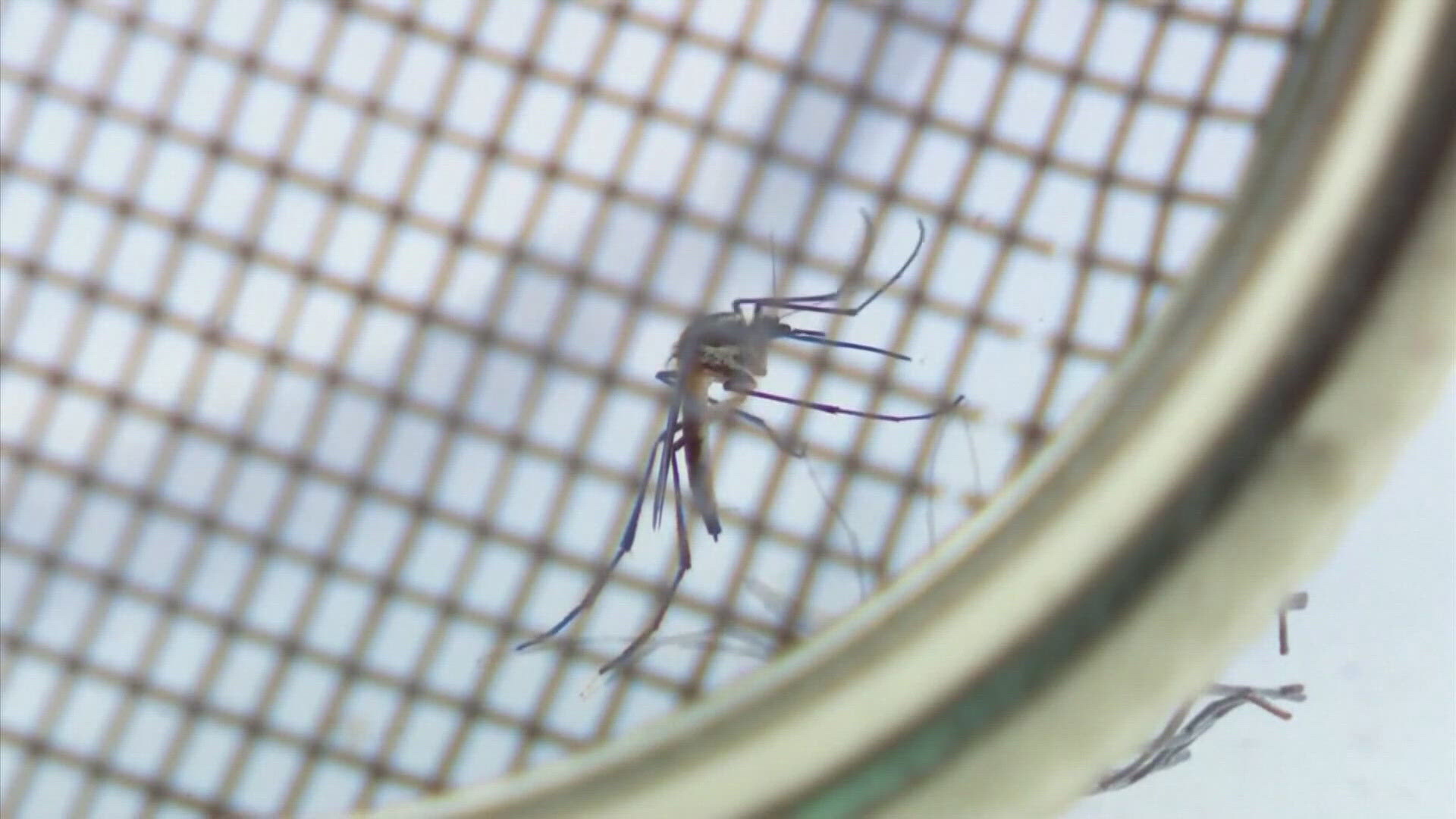FORT CAVAZOS, Texas — The Fort Cavazos Department of Public Health (DPH) has confirmed two mosquito pools have tested positive for the West Nile Virus, the Fort Cavazos Media Center announced on Thursday, Aug. 22.
DPH said this is the first positive mosquito pool for this year that was trapped on Fort Cavazos.
To ensure the safety of everyone that lives and works at Fort Cavazos, Environmental Health conducts weekly mosquito surveillance from April through October on main post, West Fort Cavazos, North Fort Cavazos and the Belton Lake Outdoor Recreation Area, according to the Media Center.
The infected mosquito pool traps were reportedly collected near the Montague Village Housing Area located on West Fort Cavazos and the vicinity of T.J. Mills Boulevard and Casa Blanca Road.
Fort Cavazos said mosquito numbers have decreased in recent weeks, requiring no additional pest control treatment.
DPH said there have been no patient cases of West Nile Virus on Fort Cavazos at this time.
Fort Cavazos DPH and the Installation Pest Control Management will continue to monitor the mosquito population and provide "intervention" if warranted, said the Media Center.
The Centers for Disease Control and Prevention (CDC) say West Nile Virus is mostly spread to people from a bite from an infected mosquito. Mosquitos get infected by feeding on infected birds, and then spread the virus to people and other animals through bites.
The CDC said most people with West Nile do not feel sick, though about one in five develop a fever and other symptoms like headaches, body aches, joint pains, vomiting, diarrhea or rashes.
About one in 150 people infected develop a severe illness such as encephalitis or meningitis, said the CDC. Severe illness can occur in people of any age, though people 60 or older or who have medical conditions such as cancer, diabetes, hypertension, kidney disease or who have received organ donations are at higher risk.
The Fort Cavazos Media Center said Department of Public Health and Environmental Health experts at Carl R. Darnall Army Medical Center recommend the “four D’s” to help keep residents safe.
- Dress: Wear long, loose and light-colored clothes while outside. It’s hot in Texas but adding a layer of fabric makes it much more challenging for mosquitos to reach your skin and bite. Consider spraying insect repellent on clothing (mosquitoes can bite through thin clothing) and ensure you “dress” your house with window screens to keep mosquitos out.
- DEET: When outside, use insect repellants containing DEET or other EPA approved repellants. Using an insect repellent containing DEET or Picaridin on skin not covered by clothing is very important. Keep in mind that insect repellents should not be used on young infants.
- Drain: Regularly drain standing water, including water that collects in empty cans, tires, buckets, clogged rain gutters and saucers under potted plants. Mosquitoes breed in stagnant water, so these actions can help reduce the number of mosquitoes in areas where people live. When water is contaminated with organic matter (i.e. animal waste, grass and leaves), the chances that mosquito larvae will survive may increase. Contaminated matter provides food for larvae to eat. After heavy rain, individuals should empty and scrub, turn over, cover or throw out containers that hold water.
- Dusk to Dawn: To the extent possible, limit outdoor activities at dusk and dawn when mosquitos are most active.
More from 6 News:

